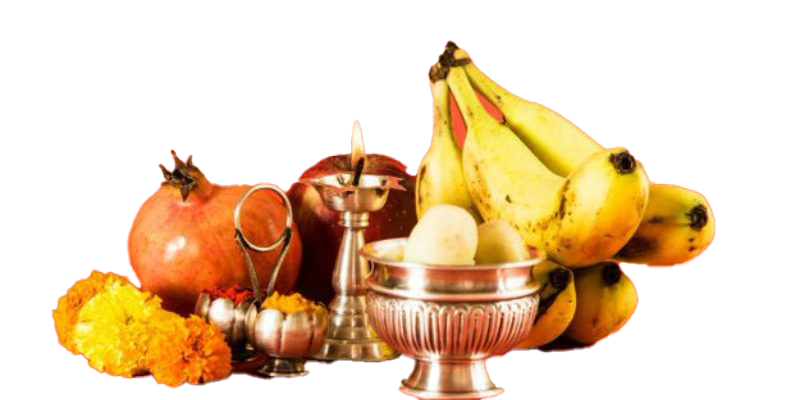Science also says that keeping fasts is beneficial and spirituality also says that keeping fasts is beneficial. Its main objective scientifically is that our body becomes healthy, the body becomes pure. Spiritually, by keeping fasts, the mind and soul are controlled. Both mind and soul come under control.
Difference between fasting and fasting
Fasting- In fasting, Up means near and Vaas means to sit or stay, that is, to sit with concentration on your God. Chanting his name and praising him. That is, to stay close to God. With a pure mind, you try to stay near God, this is called fasting. In fasting, one has to remain without food, that is, one has to stay without taking food. On this day, you have to spend more time in meditation of God.
Fasting- Fasting means to observe a fast by taking a resolution for something, this is called fasting. Food is eaten in fasting. You can eat food at any time in fasting.
What are the rules of keeping fast?
In religious scriptures, there are different rules for keeping every fast. Fasting is kept in two ways. One is Nirjal fast, in which you do not take even a sip of water. The second fast is fruitarian or water fast, in which fasting can be kept by eating fruits or drinking lemonade. Generally, Nirjal fast should be kept only by those who are completely healthy and fit. At the same time, one should take minimum food on the day of fasting.
Spiritual importance of keeping fast
If we see from the point of view of scriptures, then keeping fast is also a penance, a tapasya. In the 17th chapter of Bhagavad Gita, many types of penances have been told, out of which not eating food is also a penance. Asastravihitam Ghoram Tapyante Ye Tapo Janaah. Dambhaahankaar Samyukta Kamaragabalanvitaah. That is, the person who performs severe penance only in his mind without following the rules of scriptures and who is filled with arrogance and ego and also with desire, attachment and pride of strength, is called penance. Along with this, if a person observes fasts etc. for himself, that is, to fulfill his desires, then it is called demonic tendency. That is why a person should not fast for his desires. Whenever penance has to be done, it should be done only for God.
Religious reasons for fasting
By observing fasts on special dates or days, not only the body and mind are purified, but the desired wish is also fulfilled. The most important fasts among the fasts are Ekadashi, Purnima, Amavasya and Navratri. These fasts are generally considered the most sacred in the whole world. It is said that if a person observes Ekadashi fast regularly, then the restlessness of his mind ends. Along with this, wealth and health are also attained. If a person keeps a fast on Purnima or Amavasya, because these fasts are also considered very important. By keeping a fast on Purnima and Amavasya, the problem of hormones gets cured. Also, those who have mental illnesses also get relief from it. Apart from this, there are transitions of seasons twice a year. Once before the onset of summer and once before the onset of winter. At that time, there is a provision of fasting on Navratri to balance the metals of the body.
Scientific importance of fasting
Fasting is said to be very important in Ayurveda. Fasting also helps in keeping a person healthy. Obesity is also reduced by fasting one day a week. Not only this, the digestive system of a person also becomes stronger by fasting. Immune system becomes strong – By fasting, the immune system of the body becomes strong. Due to this, the body’s ability to fight diseases increases. Apart from this, the risk of getting neurology, colitis, fatigue, constipation and headache is reduced significantly.
• It is very essential for the smooth functioning of various systems of our body.
• It is also good for controlling various types of defects in our body.
• It is also very good for balancing the hormonal activities of your body.
• It is also good for keeping you stress free and maintaining your calm mind.
We feel a different kind of self awareness/consciousness on this day and we cannot describe it in words.
• The yoga/pranayama/other methods described in yoga for smooth functioning of the body done on this day are especially effective on this day.
• Our concentration is more on this day than on other days.
• It is a very good way to improve our immune system.
• We feel that it is also very good for maintaining our body clock smoothly.
• Apart from this, it is very helpful for weight loss,
• to slow down the aging process,
• in many other fatal diseases,
• in heart diseases,
• to maintain cholesterol levels,
• to maintain insulin levels,
• to make the digestive system stronger.
Fasts are also associated with planets, luck will shine as soon as you do them.
Fast of Sun God
To get the auspicious energy of Lord Bhaskar, fast can be kept for 12 Sundays, 30 Sundays or for one year. On the day of fast, after bathing and meditating, put pure water, red roli or sandalwood, whole rice, red flowers etc. in a copper vessel and offer water while reciting the mantra ‘Om Ghrini Suryay Namah’. Also, chant this mantra at least 3 times. Due to the effect of this fast, auspicious results increase, health, enemy subduing and sharpness are obtained.
Fast of Moon God
To get the blessings of Moon God, the lord of man’s mind, one should fast for at least 1, 16 or 54 Mondays. On this day, after bathing and meditating, chant ‘Om Shraam Shreem Shraum Sah Chandray Namah’ at least 3, 5 or 11 times while wearing white clothes. Do not use salt in food.
Mangal Devta Vrat
To get the blessings of Mangal Devta, the symbol of courage and self-confidence, one should keep the fast of Tuesday with discipline. This fast should be kept for minimum 21 or 45 Tuesdays and one should regularly chant ‘Om Ang Angarakaya Namah’ 3, 5 or 7 times. Do not use salt in this fast also. This fast of Mangal Dev frees one from debt and gets the happiness of children.
Budh Dev Vrat
To get knowledge, wealth and prosperity, one should keep the fast on 17, 21 or 45 Wednesdays. Wear green clothes on the day of the fast and recite the mantra ‘Om Bum Budhaya Namah’ 3, 5 or 17 times. One should use things made of moong in food. This fast is very beneficial for those who work with conversation or knowledge.
Fast of Brihaspati Devta
For knowledge, happiness, children and good luck, etc., fast of Brihaspati Devta should be kept for at least 16 weeks, one year or 3 years. Wear yellow clothes on this fast day. Also, worship bananas along with reading the story of Thursday. In the worship, chant 3, 5 or 16 rosaries of ‘Om Graam Greem Groum Sah Guruve Namah’.
Fast of Shukra Devta
This fast is observed for happiness, prosperity, good luck and marital happiness. It should be observed on 16, 21 or 31 Fridays. On this day, wear white clothes and chant ‘Om Shun Shukraya Namah’ 5, 11 or 21 rosaries. This Vaibhav Lakshmi fast is also observed for happiness and prosperity.
Fast of Shani Devta
To get the blessings of Shani Dev and to remove the defects associated with him, fast should be observed for 15 or 51 Saturdays. This fast provides a lot of relief during Shani Sadesati or Dhaiyya. On Saturday, after bathing and meditating, one should wear black clothes and chant the mantra ‘Om Praam Preem Praom Sah Shanishcharaya Namah’ 5, 11 or 15 times.
Fast of Rahu and Ketu planets
To remove the defects related to Rahu and Ketu and to remove all the defects with their auspicious effect, one should fast in their name for at least 18 Saturdays. On the day of the fast, one should wear black clothes and chant ‘Om Bhraam Bhreem Bhraum Sah Rahve Namah’ or ‘Om Ken Ketave Namah’ 5, 11 or 18 times.







